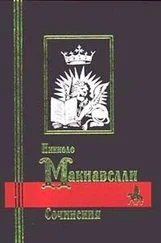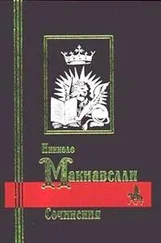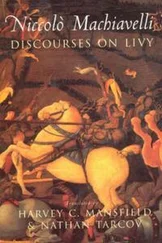And as if it were not enough to have aggrandized the Church, and deprived himself of friends, he, wishing to have the kingdom of Naples, divides it with the King of Spain, and where he was the prime arbiter in Italy he takes an associate, so that the ambitious of that country and the malcontents of his own should have somewhere to shelter; and whereas he could have left in the kingdom his own pensioner as king, he drove him out, to put one there who was able to drive him, Louis, out in turn.
The wish to acquire is in truth very natural and common, and men always do so when they can, and for this they will be praised not blamed; but when they cannot do so, yet wish to do so by any means, then there is folly and blame. Therefore, if France could have attacked Naples with her own forces she ought to have done so; if she could not, then she ought not to have divided it. And if the partition which she made with the Venetians in Lombardy was justified by the excuse that by it she got a foothold in Italy, this other partition merited blame, for it had not the excuse of that necessity.
Therefore Louis made these five errors: he destroyed the minor powers, he increased the strength of one of the greater powers in Italy, he brought in a foreign power, he did not settle in the country, he did not send colonies. Which errors, had he lived, were not enough to injure him had he not made a sixth by taking away their dominions from the Venetians; because, had he not aggrandized the Church, nor brought Spain into Italy, it would have been very reasonable and necessary to humble them; but having first taken these steps, he ought never to have consented to their ruin, for they, being powerful, would always have kept off others from designs on Lombardy, to which the Venetians would never have consented except to become masters themselves there; also because the others would not wish to take Lombardy from France in order to give it to the Venetians, and to run counter to both they would not have had the courage.
And if any one should say: "King Louis yielded the Romagna to Alexander and the kingdom to Spain to avoid war," I answer for the reasons given above that a blunder ought never to be perpetrated to avoid war, because it is not to be avoided, but is only deferred to your disadvantage. And if another should allege the pledge which the king had given to the Pope that he would assist him in the enterprise, in exchange for the dissolution of his marriage [5] Louis XII divorced his wife, Jeanne, daughter of Louis XI, and married in 1499 Anne of Brittany, widow of Charles VIII, in order to retain the Duchy of Brittany for the crown.
and for the cap to Rouen, [6] The Archbishop of Rouen. He was Georges d'Amboise, created a cardinal by Alexander VI. Born 1460, died 1510.
to that I reply what I shall write later on concerning the faith of princes, and how it ought to be kept.
Thus King Louis lost Lombardy by not having followed any of the conditions observed by those who have taken possession of countries and wished to retain them. Nor is there any miracle in this, but much that is reasonable and quite natural. And on these matters I spoke at Nantes with Rouen, when Valentino, as Cesare Borgia, the son of Pope Alexander, was usually called, occupied the Romagna, and on Cardinal Rouen observing to me that the Italians did not understand war, I replied to him that the French did not understand statecraft, meaning that otherwise they would not have allowed the Church to reach such greatness. And in fact is has been seen that the greatness of the Church and of Spain in Italy has been caused by France, and her ruin may be attributed to them. From this a general rule is drawn which never or rarely fails: that he who is the cause of another becoming powerful is ruined; because that predominancy has been brought about either by astuteness or else by force, and both are distrusted by him who has been raised to power.
Chapter IV
Why the Kingdom of Darius, Conquered by Alexander, Did Not Rebel Against the Successors of Alexander at His Death
Considering the difficulties which men have had to hold to a newly acquired state, some might wonder how, seeing that Alexander the Great became the master of Asia in a few years, and died whilst it was scarcely settled (whence it might appear reasonable that the whole empire would have rebelled), nevertheless his successors maintained themselves, and had to meet no other difficulty than that which arose among themselves from their own ambitions.
I answer that the principalities of which one has record are found to be governed in two different ways; either by a prince, with a body of servants, who assist him to govern the kingdom as ministers by his favour and permission; or by a prince and barons, who hold that dignity by antiquity of blood and not by the grace of the prince. Such barons have states and their own subjects, who recognize them as lords and hold them in natural affection. Those states that are governed by a prince and his servants hold their prince in more consideration, because in all the country there is no one who is recognized as superior to him, and if they yield obedience to another they do it as to a minister and official, and they do not bear him any particular affection.
The examples of these two governments in our time are the Turk and the King of France. The entire monarchy of the Turk is governed by one lord, the others are his servants; and, dividing his kingdom into sanjaks, he sends there different administrators, and shifts and changes them as he chooses. But the King of France is placed in the midst of an ancient body of lords, acknowledged by their own subjects, and beloved by them; they have their own prerogatives, nor can the king take these away except at his peril. Therefore, he who considers both of these states will recognize great difficulties in seizing the state of the Turk, but, once it is conquered, great ease in holding it. The causes of the difficulties in seizing the kingdom of the Turk are that the usurper cannot be called in by the princes of the kingdom, nor can he hope to be assisted in his designs by the revolt of those whom the lord has around him. This arises from the reasons given above; for his ministers, being all slaves and bondmen, can only be corrupted with great difficulty, and one can expect little advantage from them when they have been corrupted, as they cannot carry the people with them, for the reasons assigned. Hence, he who attacks the Turk must bear in mind that he will find him united, and he will have to rely more on his own strength than on the revolt of others; but, if once the Turk has been conquered, and routed in the field in such a way that he cannot replace his armies, there is nothing to fear but the family of this prince, and, this being exterminated, there remains no one to fear, the others having no credit with the people; and as the conqueror did not rely on them before his victory, so he ought not to fear them after it.
The contrary happens in kingdoms governed like that of France, because one can easily enter there by gaining over some baron of the kingdom, for one always finds malcontents and such as desire a change. Such men, for the reasons given, can open the way into the state and render the victory easy; but if you wish to hold it afterwards, you meet with infinite difficulties, both from those who have assisted you and from those you have crushed. Nor is it enough for you to have exterminated the family of the prince, because the lords that remain make themselves the heads of fresh movements against you, and as you are unable either to satisfy or exterminate them, that state is lost whenever time brings the opportunity.
Now if you will consider what was the nature of the government of Darius, you will find it similar to the kingdom of the Turk, and therefore it was only necessary for Alexander, first to overthrow him in the field, and then to take the country from him. After which victory, Darius being killed, the state remained secure to Alexander, for the above reasons. And if his successors had been united they would have enjoyed it securely and at their ease, for there were no tumults raised in the kingdom except those they provoked themselves.
Читать дальше












